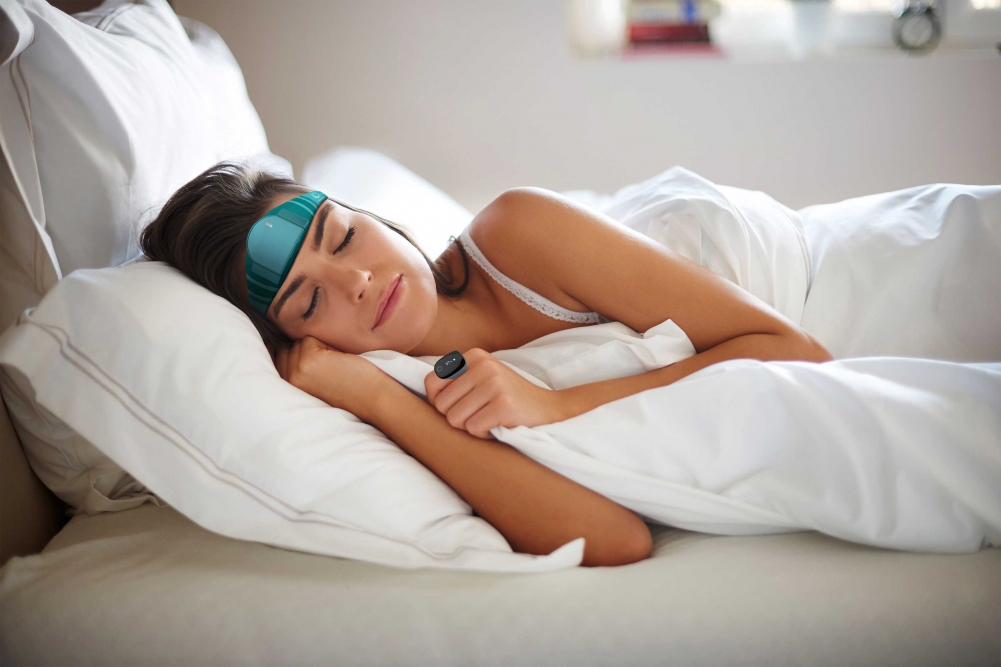


Image: SleepUp
Published on 10/29/2024
By Roseli Andrion | Agência FAPESP – Sleep is an important part of the daily cycle, during which the organism performs such renewal functions as tissue repair, muscle recovery, immune system restoration, hormone production and memory consolidation, among others. Sleep deprivation impairs the immune, digestive and endocrine systems, as well as is associated with cardiac dysfunctions and diabetes, says Renata Bonaldi, founder of the startup SleepUp.
“In the short term, insomniacs will suffer from somnolence, fatigue and irritability, for example. When sleep quality improves with the aid of psychotherapy, on the other hand, the experience becomes more restorative and healthier,” Bonaldi says.
To help these patients, the startup has developed a medical application for treatment of sleep disorders, with the support of FAPESP’s Innovative Research in Small Business Program (PIPE). In the case of insomnia, the platform uses a clinical protocol based on cognitive behavioral therapy. “Drugs usually don’t treat the causes of insomnia, which are behavioral and cognitive. They merely mitigate the symptoms,” she says.
The startup was one of several selected to participate in a business delegation to FAPESP Week Italy, which took place on October 14-15 at the University of Bologna.
According to Bonaldi, the causes of insomnia mostly involve adverse behavioral patterns at bedtime. The app helps the user change these by means of cognitive behavioral therapy, the gold standard for treating this condition. “The user will experience an improvement within a matter of weeks, but complete correction depends on the cause. Completion of our protocol takes at least three months,” she says.
The digital approach on which the solution is based focuses on treating the causes of insomnia. The app also includes other resources, such as medical history and a diary. “The goal is to democratize access to healthy sleep, a virtually universal need, as the problem affects roughly half the world population,” she says.
Bonaldi began developing the platform after talking to potential users while she was studying the use of technology in healthcare. “Sleep came first in the surveys of people’s priorities I conducted. People want help with sleep problems because they lack easy access to diagnosis and treatment in this area. Many are looking for a technology-based intervention to address sleep disorders, so we created this digital treatment option,” she says.
Users of the tool run through a series of routine daily activities to achieve healthy sleep. “They make up a set of strategies based on psychotherapy. Patients follow the list of tasks until their condition improves. They can also keep track of their sleep metrics via graphs,” she says.
Sleep apnea is physiological
The app also offers treatment for sleep apnea, which has physiological causes, Bonaldi argues. In Brazil, sleep apnea affects around 30% of the population, according to Instituto do Sono. Many sufferers are not diagnosed or treated because they are unaware of the problem, let alone the possibility of tackling it. “Our app can help people with this sleep disorder, too,” she says.
Many people with moderate or severe apnea use a continuous positive airway pressure (CPAP) machine with a mask over the nose and/or mouth to help them breathe and prevent snoring while they sleep.
“Sleep apnea normally can’t be cured, and some patients have to use a CPAP all their lives. In these cases, SleepUp’s app promotes adherence to treatment because it provides therapy as well as monitoring,” she says.
For both insomnia and apnea, the system can be connected to wearable devices that can diagnose disorders, such as an electroencephalography (EEG) headband, or a pulse oximeter ring. “These wearables have proprietary technology and should be prescribed by a health professional. The patient takes them home and wears them while asleep. The physician then has access to precise clinical data reflecting the characteristics of the individual’s sleep, and can decide on a treatment strategy on the basis of this information,” she says.
The involvement of a specialist is crucial in order to ensure that the results are correctly interpreted. “If the patient doesn’t understand what they mean, this can cause more worry and anxiety. Sleep is an organic function, and the less you worry about it, the better. A health professional can help the patient decide what’s natural and what isn’t,” she says.
More than 25,000 users
The app is clinically validated and approved by ANVISA, the federal agency responsible in Brazil for regulating medical drugs, procedures and technologies, among other health-related products and services.
“We have ample evidence to prove the efficacy of our digital therapy protocol for treatment of these chronic sleep disorders,” Bonaldi says. With more than 25,000 users and 18 academic publications, the solution is available to anyone over 18 from all app stores, including a free version.
Instances of the app in English and Spanish await regulatory approval in the United States and Europe. “It’s already available in Abu Dhabi, the capital of the United Arab Emirates. We want to be a global company. Indeed, that’s why we have an English-language name,” she says.
The system is the only solution approved by ANVISA, and has no competitors in Brazil. “No one else offers both diagnosis and treatment for these sleep disorders here. Diagnosis is available, and so is treatment, but separately. We’re the only ones to offer both, plus we’re approved by ANVISA,” she says.
The algorithms used by the app were developed with artificial intelligence. “They’re all proprietary and were developed entirely in Brazil. AI is involved in automation and personalization, as well as training the monitoring and wearable EEG algorithms,” she says.
Source: https://agencia.fapesp.br/53156